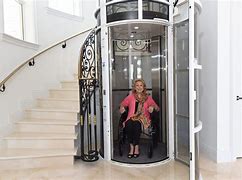Below is a review of the posts on Facebook and LinkedIn from the past week. You can check out the full posts by clicking on the links.

The post on Sunday 6/9/2024 said US DOL overtime expansion “unlawful”, business groups argue. The new rule requires workers who make less than $58,656 annually to receive overtime pay and allows for automatic increases. the plaintiffs filed a lawsuit in the same federal court hat previously enjoined an Obama-era overtime rule, saying “the Department has done it again.” On what laws do they base their claim that the rule is unlawful? See the post.
The plaintiffs here include the American Hotel and Lodging Association, the Associated Builders and Contractors, and multiple others listed in the post; they allege that the rule proposed by DOL ignores legal precedent and the needs of corporate America. What do they say specifically about the threshold? Yep, see the post.
This suit is just the latest the current administration faces as it works to promulgate a number of employment regulations and guidances during this election year. DOL is already defending a recently updated independent contractor rule (a link to which is in the post). And the EEOC also is facing a suit by 18 states relative to its guidance on gender identity. In that case the plaintiffs argue that the EEOC has misinterpreted the Supreme Court’s Bostock v. Clayton County decision. One of those 18 states, Tennessee, is also leading the charge on the challenge of another EEOC guidance – see the post for more on that.
TAKEAWAY: Unless and until a court stays the effective date of an administrative agency’s rule or policy in your jurisdiction (and not just where the plaintiffs in the suit are located), you must comply. Know the law and your obligations to comply.

The post on Monday 6/10/2024 noted state utility commission attorney alleges employment discrimination. The case has interesting facts, especially given the recent SCOTUS decision in Muldrow v. City of St. Louis (see our posts on Sat. 6/1/2024, Thurs. 4/25/2024, and Mon. 3/25/2024 for more on Muldrow.) One of Arizona’s most powerful government agencies is facing a discrimination complaint, but not from just any employee. Robin Mitchell was recently the agency’s top attorney, in charge of all legal and ethical matters. In May 2024 Mitchell sent a Notice of Claim letter to three elected Arizona Corporation Commissioners and two high-level staff members; she alleges that she was unjustly demoted in January and is paid less than her replacement because she is a Black woman. Let’s dive deeper.
Mitchell’s 11-page letter alleges that agency leaders carried out a “purge” of minority employees over the past year; how she says they did that is in the post. A spokesperson for the Commission says the Notice of Claim contains misstatements and inaccuracies and the agency is preparing to defend itself. Its actual statement is in the post.
Mitchell’s letter alleges the Commission, under the guidance of Executive Director Doug Clark, “engaged in a pattern and practice of treating Mitchell and other non-white, female employees less favorably than white employees and applicants.” Her letter alleges violation of federal laws regarding equal pay and civil rights. What else did the letter say Mitchell would do? See the post. And what about her settlement demand? Also in the post.
As part of its response, the Commission said that Mitchell is still employed there and is being more than when she was the head of the legal division. And what does Mitchell say about the pay issue? See the post.
The burden on a plaintiff in a case like this is described in the post. Establishing a pattern of how an employer treats other employees can be used as evidence to carry the burden. So what does Mitchell allege toward meeting her burden of proof?
Mitchell was hired in 2006 as a staff attorney and was promoted to assistant director of the legal division in 2017. She became the legal director in 2018. In that position, Mitchell was in charge of leading the legal department, providing legal advice to Commissioners and staff and handling ethics complaints. She alleges she never had any performance issues. But in September 2023 Clark told her that she was being removed from her position because less-experienced attorneys performed poorly under her management in the opening days of a case. Mitchell notes her response (see the post) but that Clark told her a group of people he only referred to as “they” (which Mitchell interpreted as noted in the post) wanted her demoted anyway. And when pressed, Clark made the statement noted in the post.
Those who are named in Mitchell’s Notice of Claim are Clark, Commissioners Kevin Thompson, Nick Myers and Jim O’Connor, and policy advisor Katharine Fredriksen. Four of them began employment with the agency in 2023. Thompson and Myers were sworn in as commissioners in January 2023. Fredriksen (who is Thompson’s sister!) was hired as O’Connor’s policy advisor. Clark took the top staff position in March 2023. (That all makes one go “hmmm.”)
Mitchell says that now she is working in a new position as “Director of Special Projects.” She also alleges that this past October the Commissioners rejected her advice regarding an open meeting violation and instead sought outside counsel (so more taxpayer dollars?). Who was retained, and that person’s opinion as compared to that of Mitchell, is all in the post.
As noted at the outset of this post, Mitchell’s re-assignment could carry greater weight if her case moves forward based on the Supreme Court’ decision in Muldrow.
So does Mitchell allege a practice of discrimination? She alleges that two Black directors of divisions (including Mitchell) were removed from their positions without justification and that another division director, a Hispanic woman, resigned under pressure after Commissioner Myers criticized her work. And the letter also contains allegations regarding another staff person and what happened to him – see the post.
And then there are Mitchell’s allegations regarding the lack of equal pay. She was making $163,000 as legal director. After reassignment, her pay was increased to $171,000. Her former position was advertised at a salary range of $150,000 – $160,000; the salary at which the Commission hired Van Flein in February (and some of his characteristics and experience) is in the post. Even Van Flein’s statement is set forth in the post. Interestingly, though, is a bit of Van Flein’s background: for more than a decade, he was the Chief of Staff to Arizona Congressman Paul Gosar and before that, he practiced law in Alaska, but when he was hired he did not yet have a law license in Arizona.
TAKEAWAY: The initial burden at least is on the employee to show comparators and their skills and experience and job duties; the employer must then come forward with a legitimate, non-discriminatory reason for the adverse action. Stay tuned.

The post on Tuesday 6/11/2024 told us County advises residents to revitalize homeowners’ association to combat open space dumping. In the late 1970s, a developer designed the Valle Vista subdivision with four acres of open space for residents’ enjoyment. But now that land has become a hot spot for illegal dumping — and a burden to people living in the area. County officials recently hosted a meeting for residents in an attempt to help them address the problem, but one thing became clear (see the post). Because of that, owners were advised to revitalize the HOA responsible for maintaining the open space. Details about the association are in the post.
And dumping on that land is not the only issue – although it is rampant. See the post for more details about what residents go through. Residents have a laundry list of other improvements needed in the neighborhood including those things noted in the post. Things that are common to most communities …
The County distinguished between those areas over which it has enforcement authority (some examples are in the post) and those it does not. One suggestion as to what to do with that land met with a favorable response – see the post.
TAKEAWAY: condo and homeowner associations usually have a purpose – more often than not it is some type of property or land maintenance. Make sure your association does what it is required to do. Contact a community association lawyer for assistance.

The post on Wednesday 6/12/2024 was about Making space: How employers are complying with the PUMP Act, one year later. President Biden signed the Providing Urgent Maternal Protections (PUMP) for Nursing Mothers Act in December 2022. Most of its provisions are now effective. What it does is expand the Fair Labor Standards Act (FLSA) to give most workers the right to “reasonable break time and a private place to pump breast milk for their nursing child.” The Act also provides that workers are entitled to a non-bathroom space to pump (the details of the required space are in the post).
Many employers have run afoul of the law since it became effective. In October 2023, a Dollar General worker filed suit against her manager – see the post. The next month, a Minnesotan mother filed suit against Sun Country Airlines – again, see the post. Then in early 2024 a plaintiff filed a class-action suit against an Ulta Beauty location in Maryland – yep, see the post. We’re not done. In February a worker alleged that her McDonald’s supervisor did not give her enough time to pump (and more as noted in the post).
The PUMP Act figures more prominently as more employers want their workers back in the office. Not all employers are fighting the Act or otherwise not complying; some are stars. Some have lactation rooms that go above and beyond a mother’s needs. An example of a Mailchimp location in Atlanta is in the post. They specifically designed the pumping rooms (plural!) to “support different kinds of working parents.”
Several months ago, Frontier Airlines settled a suit that alleged plaintiffs were disciplined for pumping and more (yep, in the post). Frontier agreed to adopt new lactation policies and establish and update a list of lactation facilities available in airports. And then there is the Labcorp case. What it agreed to after a DOL investigation is also in the post.
So what should be in place for a PUMP Act-compliant worksite? Some suggest lactation pods (described in the post). But it’s not just the physical facilities; it is also administrative and human support such as the policies and actual items/products listed in the post. And what about the easy things like providing bottle brushes and snacks?!
TAKEAWAY: You cannot sweep breastfeeding employees under the rug (i.e., no putting them in the bathroom or a back room). Make sure you fulfil your statutory obligations under the PUMP Act.

In the post on Thursday 6/13/2024, we saw that Andy Cohen files to dismiss Real Housewives star Leah McSweeney’s lawsuit alleging discrimination (as well as alcohol- and drug-related favoritism). Real, not tv, drama. Let’s get more details.
About three months after suit was filed, McSweeney asked a judge to dismiss her prior claims that she had experienced a hostile work environment (including those thigs identified in the post). But in this suit, filed in February 2024, McSweeney cast a wider net. The named defendants (in addition to Cohen) and bases for suit are detailed in the post. Cohen has asked that the suit be dismissed because it is legally insufficient and, interestingly, because it “impermissibly seeks to abridge Defendants’ First Amendment rights to tailor and adjust messages they wish to convey in their creative works, including through case selection and other creative decisions.” That argument continues relative to casting and constitutional rights – see the post.
McSweeney also claims that she experienced gender/sex-based harassment by Cohen through text messages. The basis of Cohen’s court filing on why those claims should be dismissed is in the post. How McSweeney’s legal team characterized Cohen’s motion is also interesting – again see the post. Cohen talked a bit about McSweeney’s allegations – and others levelled at the Real Housewives franchise – including alcohol use. See the post for what he said. And stay tuned as this plays out (or settles).
TAKEAWAY: Employers must make sure that no employee is discriminated against in any way – sometimes that is a tall order but it must be done.

The post on Friday 6/14/2024 showed us that HUD charges homeowners’ association with disability discrimination. The charges were filed against Consejo de Titulares del Condominio Italia 2027 (the “Condominium Italia 2027 Council of Owners”), the homeowners association for a condominium in San Juan, Puerto Rico, alleging violation of the Fair Housing Act. The post contains a link to the actual charge. The Act prohibits discrimination because of disability, including the refusal to allow reasonable accommodations or modifications that would permit homeowners with disabilities an equal opportunity to use and enjoy their housing.
HUD’s Charge alleges that Condominium Italia 2027 Council of Owners, the Respondent, revoked its prior approval of a modification the owner made to the façade of the property to allow an elevator within her multi-story unit, and an external generator to power the elevator in case of power outage. The Charge goes further; see the post. Because of the HOA’s actions, the owner was ultimately forced to leave her home because she could not move around her 3-story unit without the elevator.
So what’s next? An Administrative Law Judge will hear HUD’s charge (unless either HUD or the HOA elect the other option – see the post). If after a hearing the ALJ finds that discrimination occurred, they may award damages to the owner for her losses from the discrimination. The judge also has other powers including what is noted in the post. And if the parties opt to go the other route, what can also be awarded is noted in the post.
TAKEAWAY: HUD does not fool around with enforcement of the Fair Housing Act and its aim of equal opportunity and enjoyment in housing – don’t issue them an invitation by taking illegal action against an owner in your condo or homeowners’ association. Get legal assistance too.

Finally, in the post yesterday 6/15/2024, there was more on lawsuit to block DOL raised salary thresholds for overtime exemptions. This topic was both the start and end of our posts this week. On May 22, 2024, more than a dozen entities filed suit seeking to block the DOL’s new final rule significantly raising the minimum salary thresholds for the Fair Labor Standards Act’s (FLSA) white-collar overtime exemptions (requiring payment of overtime to many many more people). Somem of the entities that are plaintiffs in this suit were also involved in the 2016 challenge to DOL’s authority; even the same court was involved then. This suit alleges that DOL acted arbitrarily and capriciously in setting the new thresholds, ignoring concerns from the business community, and seeks expedited consideration to stay the first threshold increase which is set to take effect on July 1, 2024.
The rule was issued April 23, 2024 and the suit was filed shortly thereafter. The thrust of the suit is set forth in the post.
So what does the new rule do? It raises the minimum weekly salary for the FLSA’s EAP exemption (actual weekly and annual dollars are noted in the post) on July 1, 2024, and then increases it again (yes, the dollars are in the post) by January 1, 2025. The Rule also raise the annual compensation for the HCE (highly compensated executive) exemption July 1, 2024 and again on January 1, 2025 (dollars are again in the post). The rule also requires threshold increases every three years based on up-to-date wage data.
So what do the plaintiffs have to say about the threshold limits in the new rule? See the post (for both fact-based and procedural arguments). The suit also takes aim at the future increases every three years – the basis for that argument is also in the post.
The same court ruled on – and blocked – the DOL’s rule in 2017. Some of the same arguments were made then that are being made now. The court’s reasoning behind its ruling then is in the post. The new suit alludes to that holding. But that was not the most recent overtime suit. DOL last raised the overtime exemption thresholds in 2019. As did its predecessor in 2016, the 2019 rule faced a legal challenge. A federal judge (same state, different court) upheld the rule; the basis for that ruling is also in the post. That decision went up on appeal and on May 22, 2024, the appellate court denied an unopposed motion to expedite the appeal following the issuance of the new rule.
TAKEAWAY: As we’ve said relative to court challenges of other proposed rules, unless and until there is a stay or other ban in place that covers your workplace, you better be prepared to comply when the rule becomes effective on July 1, 2024. And get assistance from an employment lawyer.

 York, Pennsylvania 17403
York, Pennsylvania 17403